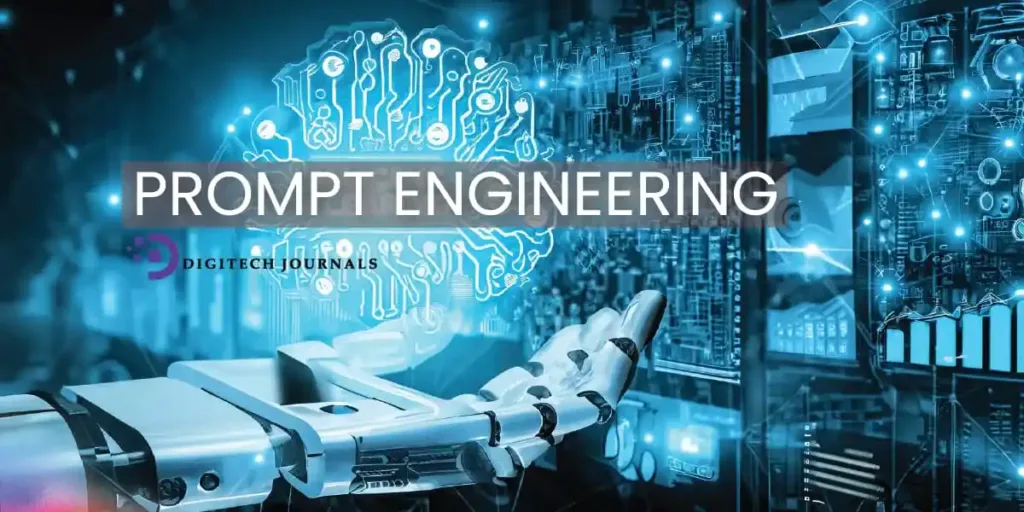Artificial Intelligence (AI) is reshaping healthcare in ways we couldn’t have imagined just a few years ago. From speeding up diagnoses to personalizing treatment plans, AI is unlocking new possibilities and improving patient outcomes. In this detailed guide, we’ll explore the most impactful AI innovations in healthcare, showing how they are revolutionizing the field for doctors, medical students, and anyone curious about AI’s role in healthcare.
AI in Diagnostics: Faster and More Accurate Than Ever
Diagnostics is the foundation of effective treatment, and AI is making it faster and more precise than ever. Machine learning algorithms can analyze complex medical data to detect diseases like cancer, diabetes, and heart conditions in record time.
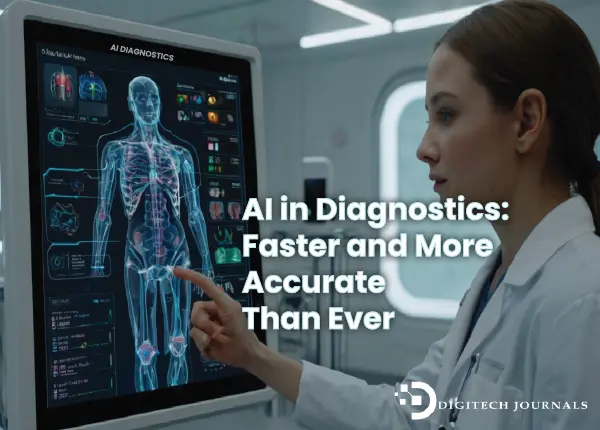
Why It Matters:
- Faster Diagnoses: AI can process medical images and data in seconds, speeding up decision-making for healthcare providers.
- Reduced Errors: AI tools minimize human error, ensuring more accurate diagnoses.
- Improved Outcomes: With earlier detection, patients have a higher chance of successful treatment.
Example:
A study by Google Health revealed that their AI system could detect breast cancer in mammograms with 9.4% fewer false negatives and 5.7% fewer false positives compared to human radiologists.
| Disease Area | AI System | Impact |
| Breast Cancer | Google Health AI | Reduced false negatives by 9.4% |
| Diabetic Retinopathy | IDx-DR AI | 91% diagnostic accuracy |
AI in Drug Discovery: Revolutionizing Research
The process of developing new drugs has always been time-consuming and expensive. But AI is now accelerating drug discovery by analyzing data to predict which compounds will be effective, cutting down the time required to bring drugs to market.
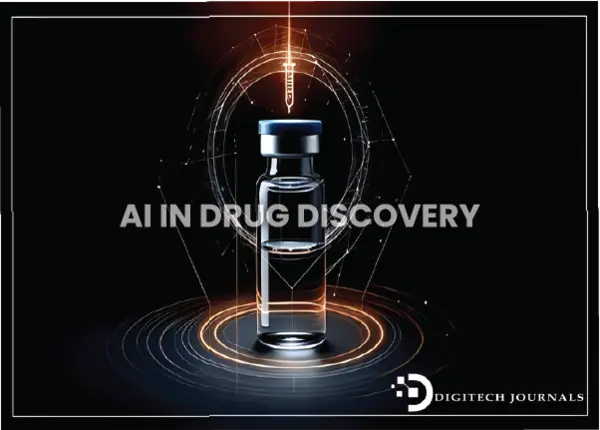
Key Benefits:
- Speed: AI helps identify potential drug candidates faster.
- Cost Efficiency: Reduces the cost of research and clinical trials by narrowing down effective options early.
- Precision: Targets the most promising compounds with fewer resources.
Example:
In 2021, Insilico Medicine used AI to design a drug for pulmonary fibrosis in just 46 days, a process that traditionally takes years. This innovation highlights the transformative power of AI in drug development.
| Drug Discovery Area | AI Tool | Time Saved |
| Pulmonary Fibrosis | Insilico AI | From 4-6 years to 46 days |
AI in Medical Imaging: Enhancing Diagnostic Precision
AI is also transforming medical imaging by assisting doctors in interpreting scans with more precision. AI tools can detect even the smallest abnormalities, improving diagnostic accuracy for conditions like cancer, fractures, and heart disease.
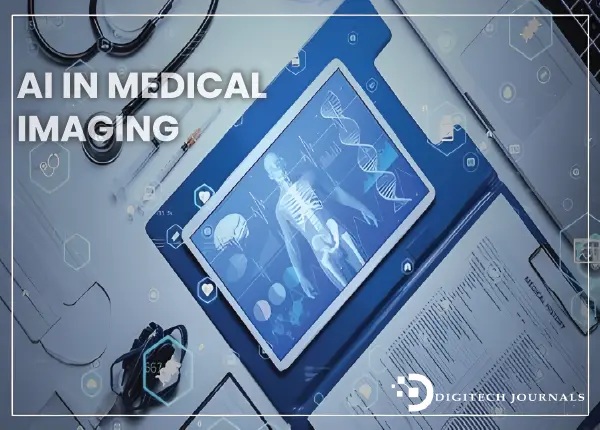
Key Benefits:
- Enhanced Accuracy: AI identifies abnormalities that may be missed by human eyes.
- Faster Analysis: AI speeds up the time it takes to analyze scans, ensuring quicker diagnosis.
- Improved Patient Outcomes: Early and accurate detection means better treatment plans.
Example:
Zebra Medical Vision uses AI to detect liver lesions with an 85% accuracy rate, providing radiologists with more reliable results.
| Imaging Type | AI Tool | Accuracy |
| Liver Lesions Detection | Zebra Medical Vision | 85% |
| Bone Fractures | DeepMind AI | 94% |
AI for Remote Patient Monitoring: Care Without Boundaries
AI-powered remote patient monitoring systems allow doctors to track patient health in real-time, often from the patient’s home. This helps doctors catch potential health issues before they become serious, improving care while reducing hospital visits.
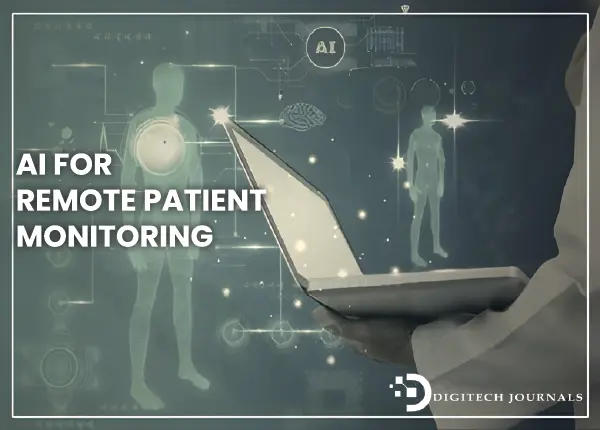
Key Benefits:
- Real-Time Monitoring: AI continuously tracks vital signs.
- Early Intervention: Healthcare providers can intervene before conditions worsen.
- Convenience for Patients: Patients can stay at home while being monitored.
Example:
Medtronic’s Guardian Connect uses AI to monitor blood glucose levels in diabetic patients, alerting them and their doctors to dangerous spikes or drops in real time.
AI in Robotic Surgeries: Precision and Efficiency
Robotic surgeries, guided by AI, are enhancing the accuracy and efficiency of operations. These systems assist surgeons in performing delicate procedures with minimal invasiveness, leading to faster recovery times and fewer complications.
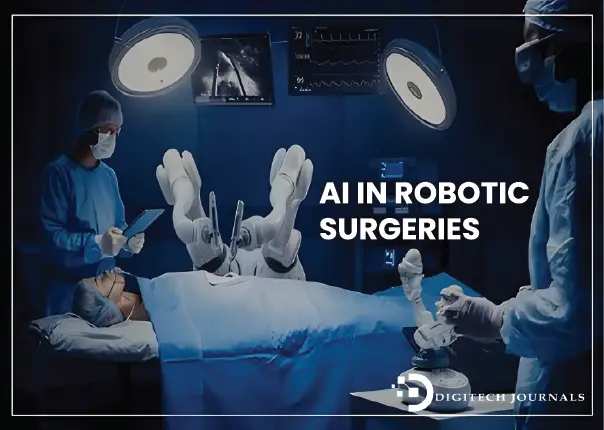
Key Benefits:
- Increased Precision: AI helps surgeons perform complex tasks with greater accuracy.
- Less Invasive: Minimally invasive procedures reduce recovery time for patients.
- Enhanced Outcomes: The precision of AI reduces the risk of complications.
Example:
The da Vinci Surgical System is one of the most widely used robotic systems in surgery, having performed over 7 million procedures globally. It allows for more controlled and precise operations, particularly in urology, gynecology, and cardiovascular surgeries.
Predictive Analytics for Early Detection: Catching Diseases Before Symptoms Appear
AI’s predictive analytics capabilities enable early detection of diseases such as cancer, diabetes, and cardiovascular conditions, often before symptoms even appear. This allows for early intervention and better patient outcomes.
Key Benefits:
- Early Detection: AI helps predict diseases before symptoms arise.
- Proactive Treatment: Doctors can intervene sooner, preventing conditions from worsening.
- Improved Outcomes: Early diagnosis leads to more effective treatments and better prognosis.
Example:
AI predictive tools used by the American Heart Association were able to forecast heart disease events with 87% accuracy, helping physicians provide preventive care.
Personalized Medicine with AI: Tailoring Treatments to the Individual
AI is revolutionizing personalized medicine by analyzing a patient’s genetic makeup, lifestyle, and medical history to create tailored treatment plans. This ensures that each patient receives the most effective care based on their unique circumstances.
Key Benefits:
- Customized Treatments: AI helps design treatments that cater to individual patient needs.
- Better Patient Outcomes: Personalized treatments are more effective, leading to faster recoveries and fewer side effects.
Example:
A study at Stanford University found that using AI-driven personalized treatment plans improved cancer survival rates by 20%, demonstrating the life-saving potential of AI in medicine.
AI in Healthcare Administration: Streamlining the Back-End
AI is not just helping doctors; it’s also revolutionizing healthcare administration. From appointment scheduling to managing patient data, AI-powered systems are automating many administrative tasks, allowing healthcare providers to focus more on patient care.
Key Benefits:
- Automated Scheduling: AI helps reduce no-shows and optimizes appointment times.
- Billing Accuracy: AI improves billing and coding processes, reducing errors.
- Data Management: AI systems keep patient records organized and easily accessible.
10 Key Benefits of AI in Healthcare
- Faster, more advanced diagnostics.
- Personalized treatment plans.
- Accelerated drug discovery.
- Reduced healthcare costs.
- Precision in robotic surgeries.
- Early detection of diseases.
- Real-time patient monitoring.
- Streamlined healthcare administration.
- Enhanced medical imaging accuracy.
- Increased access to care via telemedicine.
Leading AI Healthcare Companies
| Company Name | AI Innovation | Focus Area |
| Google Health | DeepMind AI | Medical Imaging, Diagnosis |
| IBM Watson Health | Watson for Oncology | Cancer Research, Diagnosis |
| Zebra Medical Vision | AI Imaging Analytics | Radiology, Diagnostics |
| Tempus | Genomics AI | Personalized Medicine, Genomics |
Conclusion
Artificial Intelligence is revolutionizing healthcare, from diagnostics and drug discovery to personalized treatments and administration. These innovations not only improve patient outcomes but also make healthcare more efficient and accessible. As AI continues to evolve, its role in healthcare will expand, offering even more groundbreaking solutions to longstanding medical challenges.
FAQs
How does AI improve diagnostics?
AI systems can analyze large datasets quickly, identifying diseases earlier and with greater accuracy.
What are the benefits of AI in drug discovery?
AI accelerates the discovery of new drugs by identifying promising compounds faster, reducing research costs and time.
How is AI used in surgeries?
AI-powered robotic systems assist surgeons in performing precise, minimally invasive surgeries with greater accuracy.
Can AI predict diseases?
Yes, AI predictive analytics can forecast the likelihood of diseases such as cancer and heart disease, enabling preventive care.
Which companies are leading AI healthcare innovation?
Companies like Google Health, IBM Watson, and Zebra Medical Vision are at the forefront of AI-driven healthcare solutions.



